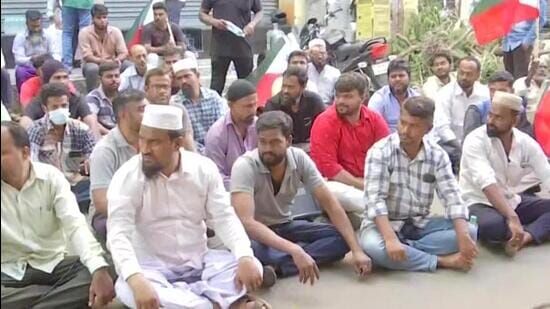A case of rivalry?

On Thursday, the National Investigation Agency (NIA), Enforcement Directorate (ED) and various state police carried out a coordinated action against the Popular Front of India across the country. In what the NIA terms to be the "largest-ever investigation process till date", the agencies arrested more than 100 activists and top leaders of the PFI. The action is stated to be against "persons involved in funding terrorism, organising training camps and radicalising people to join proscribed organisations." Both the PFI and the BJP-ruled Central government have been at loggerheads with each other for quite a long time — with the situation becoming more tense over the past few years. The front had registered its participation in some of the most critical issues during the last couple of years — be it the Hathras gang rape case, Delhi riots or the Citizenship Amendment Act. Very recently, the Supreme Court granted bail to Siddique Kappan — a journalist who was arrested on his way to Hathras to meet the family of the rape victim — for his alleged linkage with the PFI. Going against the prosecution's argument that the "whole purpose of (Kappan's) going there was to incite violence", the Supreme Court ruled in favour of Kappan, noting that "every person has the right to free expression and therefore he (Kappan) is trying to propagate an idea that there is this victim who requires justice and therefore let us raise a common voice." Interestingly, when the ED had filed the charge sheet against PFI and its student wing Campus Front of India (CFI) after the Hathras gang rape, it had cited the same intention of inciting communal violence. Launched in 2007 in Kerala, the PFI claims to be a "national movement for the human rights and emancipation of minorities, backward class and Dalit and tribal sections of society". It has been voicing criticism against the policies of the governments led by the BJP, CPI(M), Congress, JD-S and others — attracting the agony of all. The front shares very hostile relations with the BJP-RSS and the CPI(M) in southern India, where killing and counter killing of cadres has become more of a norm. The murders of S Sanjith — an RSS worker — last year and Subair — a PFI member — this year have heated up the tensions. These incidents of lethal violence indeed represent an ugly picture prevailing in southern India. It requires more than targeting a particular organisation to resolve the issue. PFI cannot be termed as a political entity as it doesn't contest elections. However, as it has a political wing in the name of Social Democratic Party of India (SDPI), it is very much embroiled in politics. It has been attracting castigations and actions from all parties, alternately, on the grounds of its alleged involvement in Islamisation of society, political murders etc. It may be noted that the PFI is not proscribed officially by the government, but has been on the radar of the ruling party at the Centre. In response to the extensive raids conducted by investigating agencies and the police, the PFI said that they "strongly protest the fascist regime's moves to use agencies to silence dissenting voices." This raises an obvious question whether the agencies are being misused to settle political scores? If that be the case, there is a need for retrospection and course-correction. It is a possibility that PFI may have been engaged in illegal and criminal acts. Those acts need to be investigated under due process of law. One may argue that investigation agencies raiding the houses of people on suspicion of terror funding is under the ambit of law. It is indeed. But the more important question is regarding the motivation behind the spontaneous raids. If the motivation is of political nature, and allegations of terror funding and money laundering are mere pretexts, then there is a need to worry. An organisation that claims to stand for the rights of minorities — rightly or wrongly — cannot be wiped off from the socio-political landscape in a high-handed manner by flouting or tweaking the rule of law. Law must take precedence — both in body and spirit. The role of PFI can be investigated but the organisation cannot be invaded under the garb of law.



